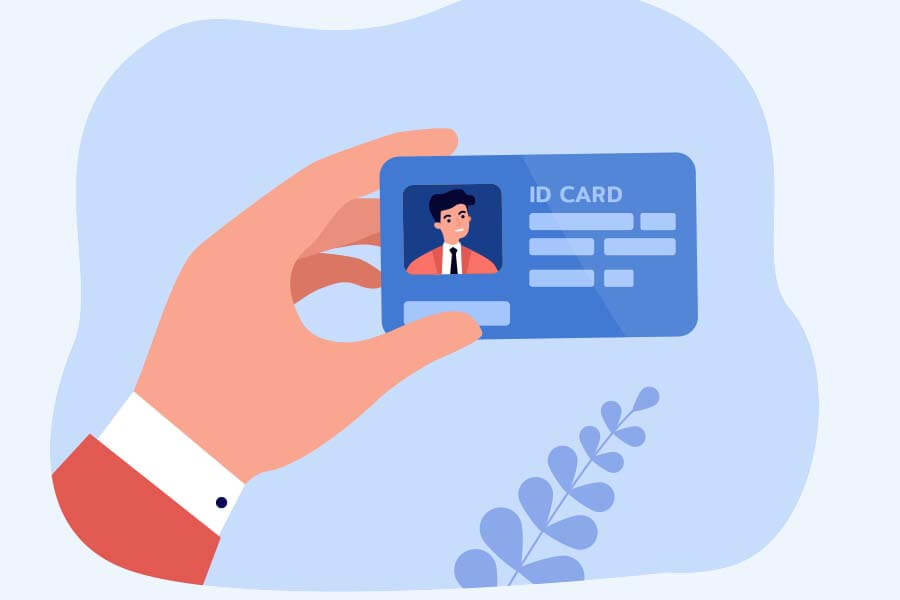
Updated 7-15-24. The most important part of a Notary’s duty is verifying the identities of signers. But if you're unsure about a signer's identification document, can you ask for additional ID?
Generally, you can ask for a secondary ID, but just what type of ID depends on your state’s regulations. Some states have very strict requirements regarding the types of ID you may use, while others are less so. And the rest leave it up to the Notary to decide what they will accept.
A common issue confounding Notaries is the disparity between the signer’s appearance and their ID photo and/or description. But that doesn’t necessarily mean your signer is an impostor. In many states ID photos aren’t updated for a decade or longer, and a person’s appearance can change dramatically in that time. In Arizona, for example, standard driver’s license and ID card photos are only updated every 12 years until the driver reaches age 60, though REAL ID-compliant Voluntary Travel IDs issued by the Arizona Department of Transportation must be renewed every eight years.
States with strict ID rules
States such as Florida, California, and Tennessee provide specific lists of IDs that Notaries may use to verify a signer’s identity. We call these states “strict” because they limit Notaries to accepting only the specific IDs on the list.
These lists always include state-issued driver’s licenses and ID cards; U.S. and often foreign passports; and various other specific U.S. or government-issued ID. If you’re a Notary in a state with strict ID rules, make sure to check you state Notary laws for the specific IDs you can use.
If you are in one of these jurisdictions, you may ask for a second ID, but it must come from your state’s list. In California, if a Notary is uncertain about the state-issued driver’s license, they cannot rely on a school ID with the holder’s photo and signature. But they could accept an employee ID issued by a California city, county, or city and county agency, or military ID, provided it is current or has been issued in the past five years and has a serial number, photograph, signature and description of the individual.
States with general ID rules
Other states have laws that prescribe the elements an ID must have but stop short of listing the specific IDs that are acceptable. We’ll categorize these states as having “general” ID rules. In North Carolina, Notaries may accept a current document issued by a federal, state, or federal or state-recognized tribal governmental agency that contains the photograph of the bearer’s face and either the signature or a physical description of the bearer. In Texas, Notaries may accept a current identification card or other document issued by the federal government or any state government that contains the photograph and signature of the acknowledging person.
In these states, you have wider range of acceptable supplemental ID available that meet the general rules. However, any ID you rely on must still have all the elements required by statute or rule.
States without ID rules
Finally, some states do not have requirements for the types of ID you may accept, but some may offer optional guidelines for Notaries to follow. Alabama, for example, suggests an identification document that includes a photo, physical description and signature. Arkansas recommends using a government-issued identification card that includes the signer's picture and signature.
In these states, Notaries have the most latitude in deciding what constitutes acceptable, supplementary ID because only the Notary must be satisfied, not a specific state law.
While you could potentially accept a university ID or library card, keep in mind, however, that you may have to defend your decision if the notarization is challenged later.
Keep in mind that Social Security cards and similar documents are easily forged and lack the elements — such as a photo and physical description — that would help you verify that your signer is who they claim to be. In addition, if you have doubts about the primary ID your signer produced, don’t lower your standards for a supplemental ID. Always remember you’re on the line when you certify that a signer with a claimed identity appears before you.
A final recommendation about marriage licenses
Notaries often ask if a marriage license constitutes an acceptable supplementary ID. They are usually faced with a situation in which a newly married woman is signing a document in her married name, but only has an ID issued in her maiden name. A marriage license typically contains little identifying information. Therefore, the NNA does not recommend relying on a marriage license as a form of supplementary ID.
Related Articles:
Identifying Signers: A Notary’s greatest challenge
Additional Resources:
NNA Tips & Tutorials
The Notary Public Code Of Professional Responsibility